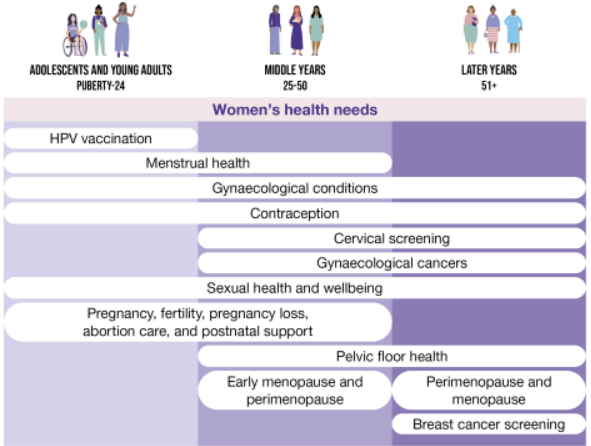Women's health toolkit
This Women’s health toolkit is categorised into sections best representing the needs of women at different stages of their lives.
In August 2025, the Faculty of Sexual and Reproductive Healthcare (FSRH) became an independent college, the College of Sexual and Reproductive Healthcare (CoSRH). Where you see FSRH in any of our courses, please read it as CoSRH – updates will be made to the name at the next routine review of each course.
Introduction
The 2022 update of the women’s health strategy noted that women spend a significantly greater proportion of their lives in ill health or disability when compared with men, that women are under-represented in clinical trials and that not enough focus is placed on female specific issues such as miscarriage and the menopause.
Proposed actions from the report include the following which are relevant to primary care:
This toolkit aims to provide those working in primary care with a one-stop resource for all their women’s health educational needs – it will cover all stages of a woman’s life, as illustrated in this infographic from the women’s health strategy. The toolkit will signpost to educational materials and relevant guidelines in women’s health, from a variety of organisations. Those interested in learning more should also visit our women’s health library which is a collaboration between the RCGP, the Royal College of Obstetricians and Gynaecologists (RCOG) and the College of Sexual and Reproductive Healthcare (CoSRH). Many of the RCGP eLearning courses referred to in this toolkit can be found on the gynaecology and women’s health hub.
Those affected by the conditions covered in the toolkit are all of the female sex and so the words woman/women and the pronouns she/her are used throughout, however some of our patients will have a gender identity which is different to their biological sex. Where this is the case, the patient’s chosen pronouns should be recorded and respected.

Image from the Women’s Health Strategy 2022, used under the Open Government Licence 3.0